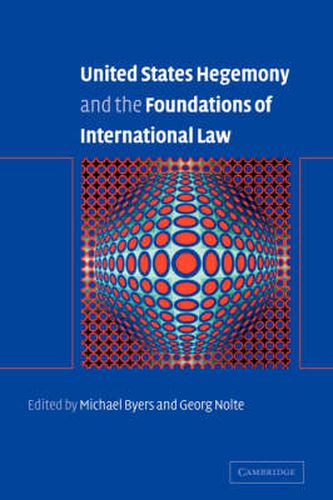Readings Newsletter
Become a Readings Member to make your shopping experience even easier.
Sign in or sign up for free!
You’re not far away from qualifying for FREE standard shipping within Australia
You’ve qualified for FREE standard shipping within Australia
The cart is loading…






Successive hegemonic powers have shaped the foundations of international law. This book examines whether the current predominance of the United States is leading to foundational change in the international legal system. A range of leading scholars in international law and international relations consider six foundational areas that could be undergoing change, including international community, sovereign equality, the law governing the use of force, and compliance. The authors demonstrate that the effects of US predominance on the foundations of international law are real, but also intensely complex. This complexity is due, in part, to a multitude of actors exercising influential roles. And it is also due to the continued vitality and remaining functionality of the international legal system itself. This system limits the influence of individual states, while stretching and bending in response to the changing geopolitics of our time.
$9.00 standard shipping within Australia
FREE standard shipping within Australia for orders over $100.00
Express & International shipping calculated at checkout
Successive hegemonic powers have shaped the foundations of international law. This book examines whether the current predominance of the United States is leading to foundational change in the international legal system. A range of leading scholars in international law and international relations consider six foundational areas that could be undergoing change, including international community, sovereign equality, the law governing the use of force, and compliance. The authors demonstrate that the effects of US predominance on the foundations of international law are real, but also intensely complex. This complexity is due, in part, to a multitude of actors exercising influential roles. And it is also due to the continued vitality and remaining functionality of the international legal system itself. This system limits the influence of individual states, while stretching and bending in response to the changing geopolitics of our time.